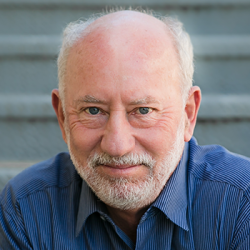
This is a big deal.
And while the timing is coincidental, we didn’t decide to launch it in response to the pandemic. Our new online course was planned for a long time—creating it has been a year-long effort. It’s another way for us to fulfill our mission to bring the benefits PBL provides to more students.
We’ve known that there are many teachers out there who would like to learn about Project Based Learning, but their schools were not ready, willing or able to have us do a PBL 101 workshop for the staff. They could be somewhere in the US or around the world. These “singleton” teachers can attend a workshop at one of our events, like PBL World or a PBL Institute, but now we have another option.
“Becoming a PBL Teacher” is an eight-week online course for K-12 teachers. It begins on July 6, 2020 and you can register now. The course is a combination of self-paced work and facilitated sessions. The facilitated sessions are held once a week on Mondays, and you can choose to join one of two cohorts: 6:30pm Eastern Time or 6:30pm Pacific Time.
Here’s the course description.
“Becoming a PBL Teacher” introduces participants to the best teaching practices for PBL and guides them to make shifts in their existing practice. No prior experience with PBL is required.
The course includes both self-directed and facilitated learning activities designed to model the PBL experience. It addresses equitable and culturally responsive practices. A variety of media and interactive features are incorporated. Participants will have the option of participating in additional discussion led by the course facilitator and other participants during office hours. You’ll create a final product that demonstrates your learning, presented in an exhibition.
Participants may choose to earn one graduate level credit, for an additional fee.
Each week of the course focuses on one of the seven Project Based Teaching Practices in our model for Gold Standard PBL.
The 8th session is a time for celebration and reflection. Participants present their final product, a collection of tools and strategies they’ve chosen to put Project Based Teaching practices into action right away, and contribute their work to an idea bank which others can access. Participants also write weekly journal entries, which are compiled and submitted as a final deliverable.

The course includes:
- Background building (via short readings, video case studies, interactive learning activities)
- Formative assessment (either for self-assessment or shared with facilitator), including focused discussions, weekly reflection, open response prompts, quizzes, and peer critique
- Collaborative learning (guided discussion with a subset of classmates, collaborative response to scenarios)
- Optional “learn more” resources in the course library
Like our PBL 101 and other workshops, the online course will be a highly engaging, productive, and enjoyable experience. And it’s practical, not theoretical. You’ll be able to apply what you learn to your own classroom—or to remote PBL teaching if that’s what your students will be experiencing in the future, as the course will model best practices for online learning.
The course is taught by two members of the PBLWorks National Faculty, experts in PBL. All materials for the course are provided online; there’s no required text.
Major props are due to the team that made this happen.
The course was developed by PBLWorks National Faculty member and PBL expert Suzie Boss. Rich Dixon directed the effort and brought his years of experience as a K-12 educator and his deep experience in educational technology and online learning to the task. Additional online instructional design and technical assistance was provided by Clarity Innovations. We are also thankful for the contributions of PBLWorks staffers Maya Ofek, Stanley Richards, and Signe Englert.
For more details about Becoming a PBL Teacher, visit our website here.

